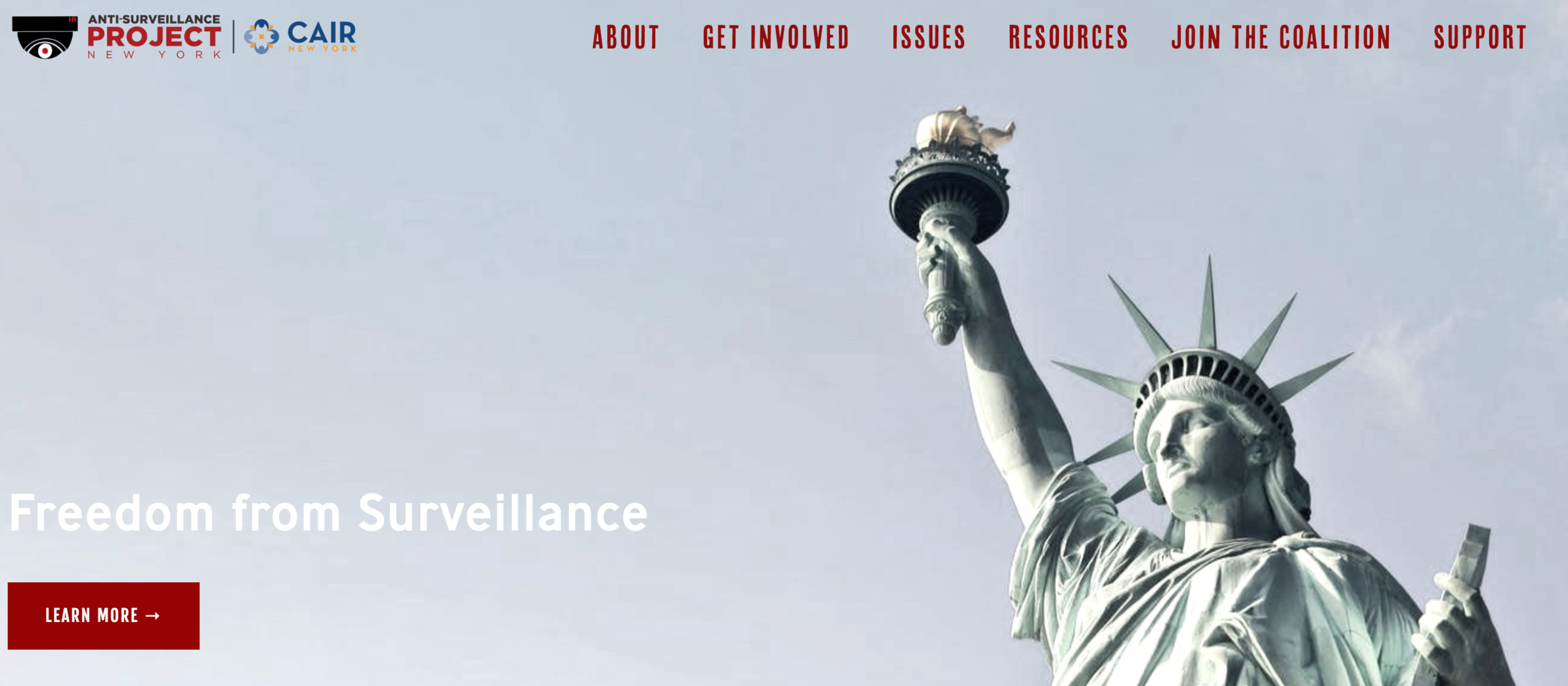CAIR-NY Joins Other Civil Rights and Community Groups Skeptical of Second NYPD Spying Report
[NEW YORK, NY, 7/18/2019] -- Today, the New York chapter of the Council on American-Islamic Relations (CAIR-NY), the nation’s largest Muslim civil rights and advocacy organization, joined other civil rights and community groups in responding to the second annual public report on the New York City Police Department’s (NYPD) intelligence operations from Stephen Robinson, the Civilian Representative on the NYPD’s “Handschu Committee.”
Mayor de Blasio appointed Robinson as the Civilian Representative in 2017. The position came as part of a series of reforms resulting from community mobilization in reaction to widespread NYPD spying on Muslim communities. The Handschu Guidelines were revised to limit surveillance of religious and political activity. Judge Robinson issued his first report in 2018. The second report covers the period March 2018 to March 2019.
Read the 2019 Civilian Representative Report: https://static1.squarespace.com/static/57db6af7f7e0abec41695d80/t/5d30d804e172f9000122cb90/1563482119321/2019.07+Second+CR+Report+Handschu.pdf
CAIR-NY’s Litigation Director Ahmed Mohamed stated:
“Unfortunately, Judge Robinson's 12-page report fails to answer community concerns related to how bias in leads impacts the opening of NYPD investigations. Instead of providing meaningful insight into how the NYPD is safeguarding constitutional protections, the report is as transparent as the NYPD's secretive use of military grade surveillance technology that has zero oversight. It is disappointing that Judge Robinson has recycled the NYPD’s old adage of ‘trust me’ without giving us much reason to do so.”
He noted that CAIR-NY recently launched its anti-surveillance project to educate New Yorkers about the NYPD’s secretive and illegitimate surveillance practices and to advocate for appropriate oversight.
See CAIR-NY Anti-Surveillance Project: www.aspny.org
CAIR-NY’s Executive Director Afaf Nasher stated:
"The role of the civilian representative is to critically examine the NYPD's intelligence gathering practices in relation to civil rights abuses. However, Judge Robinson's commitment to truly advocate for the communities most impacted by unjust surveillance has not yet been demonstrated convincingly. We hope that will change as further discussions with Judge Robinson take place, enhancing the understanding of the deeply seeded and well-founded concerns of the Muslim American community."
For a second year, Judge Robinson’s report is silent on the percentage of surveillance targeting Muslims. In August 2016, the NYPD Inspector General found that more than 95 percent of the NYPD’s Surveillance activities were focused on Muslims.
SEE: August 2016 NYPD Inspector General Report
https://www1.nyc.gov/assets/oignypd/downloads/pdf/oig_intel_report_823_final_for_release.pdf
SEE ALSO: The NYPD Targeted Muslims in Over 95-Percent of Investigations That Broke Surveillance Rules
Last year, community groups voiced similar concerns, including the issue of the demographics of the targets of these investigations, which remains unaddressed.
Originally ordered by consent decree in 1985, the Handschu Guidelines are the result of a class action lawsuit, Handschu v. Special Services Division, which established important limits on NYPD intelligence operations. The new safeguards— including the placement of a Civilian Representative within the Handschu Committee overseeing Intelligence Bureau surveillance of constitutionally protected religious and political organizing— were introduced into the Guidelines as part of the joint settlement process of an enforcement motion in the Handschu class action and the Raza v. City of New York case.
As part of his duties, the Civilian Representative is required to file an annual report on the NYPD’s compliance with the Handschu Guidelines. Community and civil rights organizations look forward to continuing to meet on a regular basis with the Civilian Representative.
CAIR’s mission is to protect civil rights, enhance understanding of Islam, promote justice, and empower American Muslims.
La misión de CAIR es proteger las libertades civiles, mejorar la comprensión del Islam, promover la justicia, y empoderar a los musulmanes en los Estados Unidos
END
CONTACT: CAIR-NY Litigation Director Ahmed Mohamed: ahmedmohamed@cair.com or 646-481-2103; CAIR-NY Executive Director Afaf Nasher: anasher@cair.com or 917-669-4006

